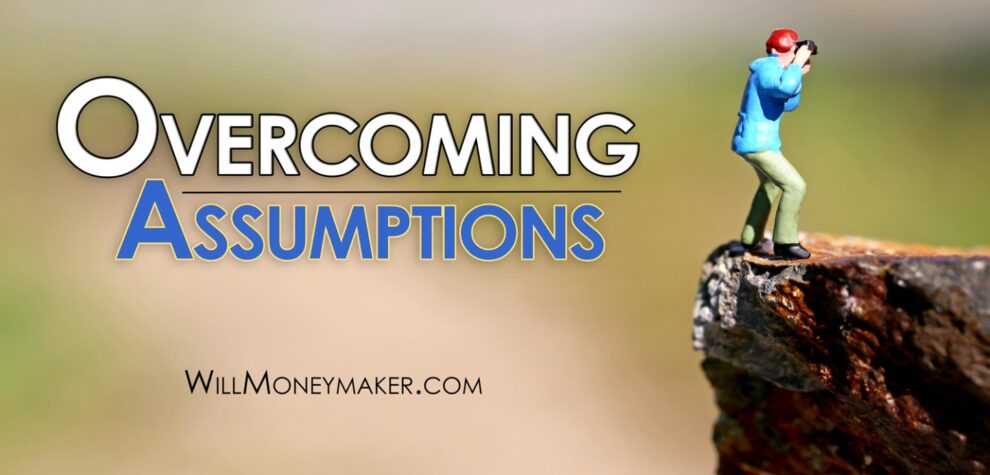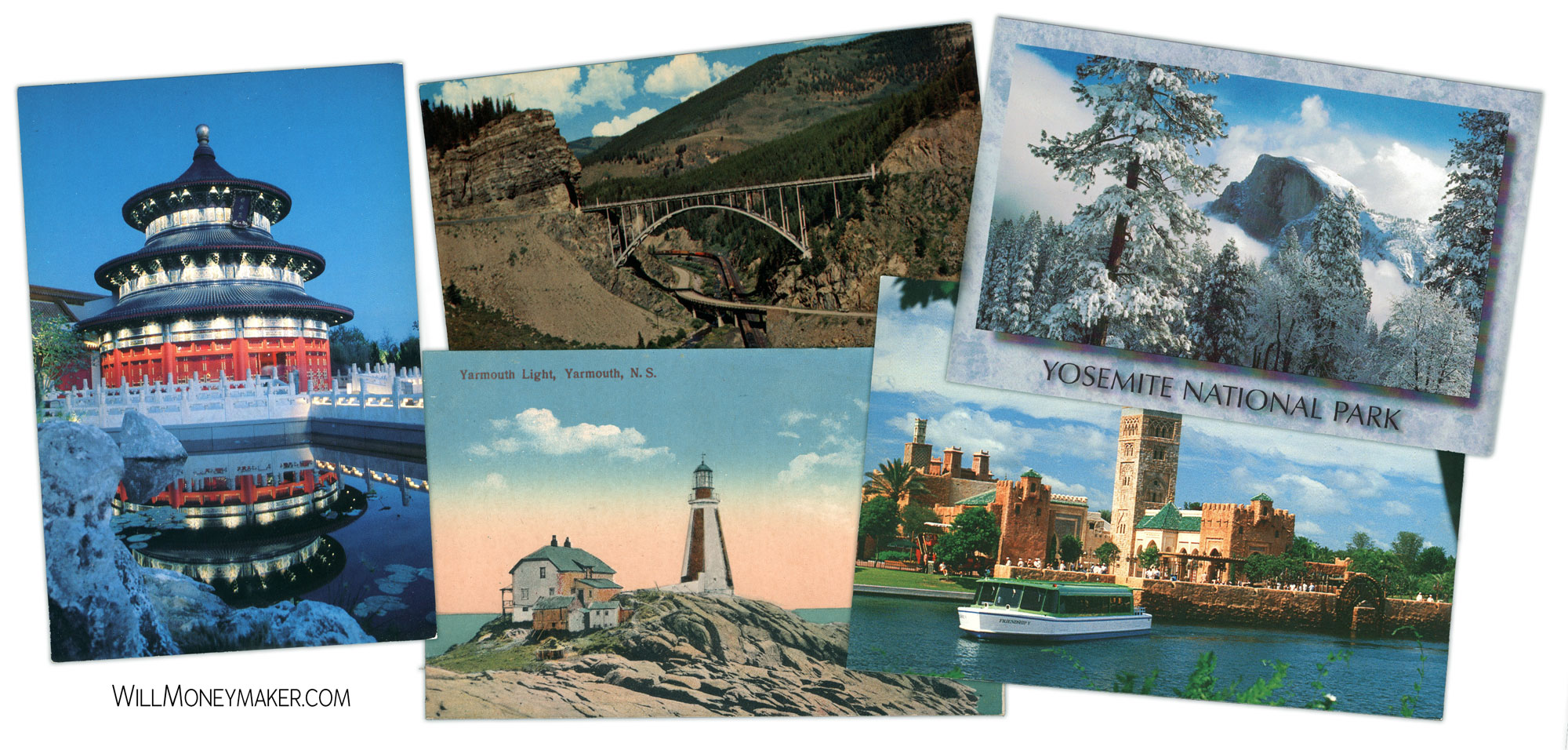Photography isn’t all fun and games. Sometimes there are things that we find annoying. Chief among them? Assumptions. There is something about creative professions — photography, writing, painting and so on — that allows people to jump to conclusions about what it is that you do. If you tell someone that you are an insurance agent, that you work in a factory or that you are an E.R. doctor, people understand almost immediately what it is you do.
However, when someone asks your profession and you tell them that you are a photographer, well, let’s just say that you can expect a barrage of questions, many of which you’ve probably already heard and are tired of hearing. Here are some of the questions that I often hear when people make assumptions at what I do. Give them a read and then hopefully you’ll be able to laugh with me and brush off some of the annoyance at the assumptions people make!
1. Can you photograph my wedding?
This is one of the first questions that comes up when you tell friends or family that you are a photographer — and it is one of those questions that can make any photographer’s hair stand on end. Why? For a few reasons!
Number one, wedding photography is a lot of time, effort, expense and responsibility on the photographer’s part. As your friend, I don’t want to be held responsible if you don’t quite like your photos. And sometimes, you get that rare family member who expects you to do it for free, totally unaware that one wedding shoot can turn into days upon days of work for the photographer — plus expenses, of course.
The other thing that many people don’t think about is that not all of us are wedding photographers! What if you are a landscape artist or you work in the abstract? What if your primary line of work is commercial photography that centers around products and not people. It’s like asking a professional basketball player if he could also play soccer professionally — there are some who will do both, but not very many. The bottom line is, if you don’t already happen to be a wedding photographer (or have the desire to become one) then it is unlikely you’re going to appreciate this question when it is asked.
2. Why are your photos so expensive?
This goes back to the time, money and effort. It’s a question that you’ll hear often if you work professionally as a portraitist of some kind. People see your package pricing (or however you charge your fee) and immediately get sticker shock. As annoying as it is, it’s also easy to understand where these people are coming from.
You see, they aren’t thinking about how much your camera costs or how much you pay in insurance each month for your gear. They don’t see the hours you’re spending behind a computer screen, processing the work. The time spent driving, printing, maintaining gear — it all adds up. The only thing the customer sees is you spending an hour or two taking photographs of them. So, as much as this question may get on your nerves, it may help you to look at it from the other side of the coin — and explain to the asker why it costs what it does!
3. Can I get all the original RAW photos from the shoot?
Let’s get one thing clear: The answer to this question is always NO! I always find myself wondering, why would anyone want all of the RAWs? What do they plan to do with them? And, I refuse to give them out, not because I’m being mean-spirited but because it just isn’t a good idea.
Number one, RAW images are big files. I’m not in the business of buying massive amounts of digital storage just so I can hand over all of the 800 photos I took in a given shoot. But even if that were not an obstacle, it still isn’t wise to give out RAW files. Here are some reasons why:
- RAW files often need special software for processing and conversion. They aren’t something that an average non-photographer with shareware editing software is going to be able to work with.
- RAWs are the unfinished work. If you’re a writer, you don’t send the roughest of a rough draft to an editor, full of misspellings, plot holes, and bad punctuation. You first polish the work and then send it on. It’s the same with photography. We first process the photos because if we don’t, then there is a good chance that we’ll lose prospective customers when unedited RAW files are shown around amongst others.
4. Can you do this thing I saw on Pinterest?!
Would you ask a surrealist painter to paint you an ultra-realistic painting? Or a sketch artist to drop his pencils and paint for you in oil? This is why it is important to meet with several photographers before making a decision. Each photographer works with his or her chosen style and if that doesn’t happen to be the latest gimmicks from Pinterest, then you should look for someone else rather than forcing it on them!
5. Can you take that picture again with my smartphone?
We, photographers, know that you are excited to share your photos as soon as possible. However, it is impossible for us to simply “take the picture again” with your phone. This is because pressing the shutter button is merely the beginning. We’ll go back to our office or studio and begin the work of post processing and polishing. If you want to share selfies as soon as possible, the photographer is not going to take photos with your phone any better than you will!
6. Where can I buy a professional camera like yours so I can take beautiful photos, too?
The asker of this question generally means no harm but it comes across as offensive anyway. Why? Because it’s not the camera that makes the photos. The camera is simply the tool that you use. Better cameras will produce slightly better work, sure. But most of the beauty in a photograph comes from elsewhere.
Think about the years of reading, training, practicing, studying that goes into learning all about composition, the manipulation of light and the manipulation of gear to make it produce what you want. The hours that you’ll spend walking, getting up very early in the morning or staying out well past any reasonable person’s bedtime just to catch that perfect shot. The time you feel you’ve wasted (even though the experience is still generally fun and memorable) when you come home empty handed — something that happens all too often.
You just can’t go to the nearest store that sells cameras and become a photographer with the swipe of a credit card.
7. Do you edit your photos?
In this day and age, I sometimes stop to wonder what this question even means. Coming from some people, it is often suspicion — the suspicion that you are taking a realistic photo and creating something unrealistic, causing the viewer, if they know the photo has been edited, to feel like you’ve lied to them.
But the actual reality is this: Of course we edit our photos! It’s impossible not to. Even photographers throughout the decades of film edited their photos by cropping, dodging, burning, pushing exposure, pulling and so forth. Photographers today do much the same thing and they aren’t doing it to lie to their audience but to produce a better-finished product — a product that is often both more beautiful and more realistic than a poorly exposed image or one where the colors aren’t right.
And that leads me to the next part of the peeve, which is this: So what if a photographer does manipulate an image past the boundaries of reality? Does it really make any difference? Is there some law against this? Is the image now deceptive or somehow not really art anymore? I don’t think so. That’s what creative license is all about. We have the ability to choose what we want to portray and how we want to portray it.
To put it in different words, would you criticize an impressionist painter because their paintings are unrealistic? You would not. There is no reason that photographers cannot do the same.
Assumptions are a difficult thing to deal with, especially when you are close to the people that are making them. Do your best to laugh about them when you can and when you can’t, then try to think about the question from the perspective of the asker. And, it doesn’t hurt to inform someone whose assumptions are wildly different from reality!





